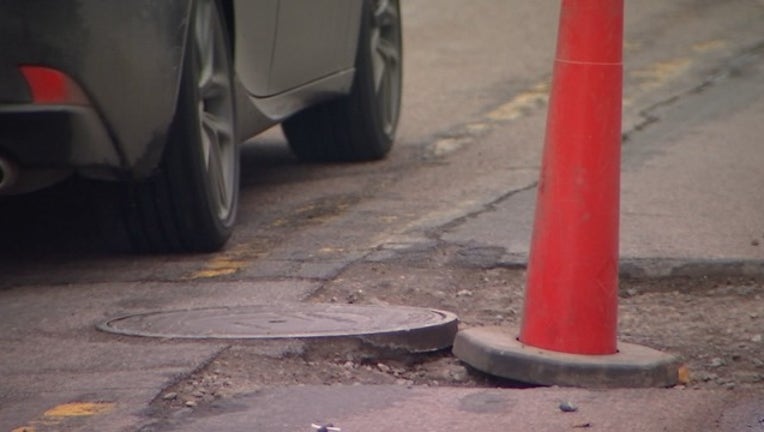University of Minnesota to test new, longer-lasting pothole fix in Duluth

DULUTH, Minn. (AP) - University of Minnesota researchers will test out a new road repair recipe in Duluth that uses a waste product from iron ore mines on the state's Iron Range.
Researchers at the university's Natural Resources Research Institute have been working on the recipe with taconite tailings for more than a decade, Minnesota Public Radio reported . Researchers believe the mix will last longer and be more easily applied in the winter than typical repairs that use asphalt.
Researchers will test the new mix on potholes in Duluth this fall.
"It's one thing to do it the lab, but we really need to get it out and have traffic and weather get on it and see how it holds up, said NRRI senior minerals researcher Larry Zanko.
A previous version of the taconite-based mix was used this summer and the formula has held up well, said Greg Guerrero, Duluth's street maintenance manager.
"We're very hopeful with this product," he said.
The standard pothole repairs using asphalt typically last 12 to 16 months, Guerrero said. Water and salt get into tiny cracks in the material, and freezing and thawing forces eventually cause potholes to reappear.
"If we can get a two- to three-year run out of this new material, we're money ahead. It will be good for us," Guerrero said.
The state Department of Transportation is backing Zanko's research. The department is also testing other pothole repair techniques, such as using a microwave on a truck to heat up a patch so it bonds better with the surrounding pavement.

